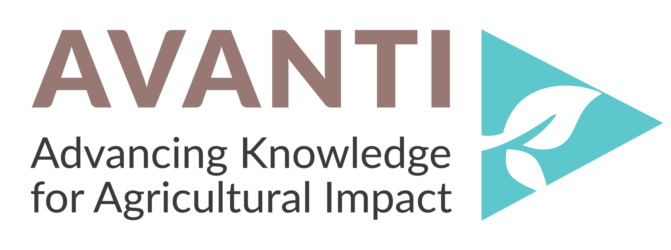Official Launch of AVANTI: Advancing Knowledge for Agricultural Impact
11 September 2018, Rome, Italy. Organized in collaboration with Helvetas Swiss Intercooperation and Itad
See also IFAD social blog about AVANTI launch
Without adequate in-country monitoring and evaluation (M&E) capacities and systems in place, achieving and tracking development outcomes is challenging. To this end, IFAD has sponsored a global grant in support of countries that are working on improving their M&E systems: the AVANTI initiative, that proposes a self-assessment of in-country M&E systems and capacities in the agriculture sector through the SDG lens. The launch event of this grant hosted a panel of peer experts discussing issues of managing for results and the link between decision-making and M&E capacities and systems, as well as the main challenges faced by the international community at different levels (governments, donors, partners, international organizations etc.) and the way forward.
Livestreaming of this event was available at https://webcasting.ifad.org/avanti
Live questions to the panel were asked through www.slido.com, event code “avantilaunch”
Twitter discussion #avantilaunch
IFAD Headquarters, Rome, Italy / Italian Conference Room / 11 September 2018
Preliminary programme
09:30
Welcome and introductory remarks
Donal Brown, Associate Vice-President, Programme Management Department, IFAD
09:40
Video presentation
introduced by Riff Fullan, Head, Knowledge and Learning, HELVETAS Swiss Intercooperation
09:45
“Managing for results in development programmes: exploring the link between decision-making and M&E capacities and systems”
moderated by Lisandro Martin, Director, Operational Policy and Results Division, a.i., Programme Management Department, IFAD
Panellists:
- Ms Aminata Mbengue Ndiaye, Minister of Livestock of the Republic of Senegal
- Ms Annette Kolff, Director, International Programmes, HELVETAS Swiss Intercooperation
- Ms Ethel Sibanda, Principal Consultant, Itad
- Mr Oscar Garcia, Director, Independent Office of Evaluation, IFAD
- Mr Bernard Woods, Director, Results Management and Aid Effectiveness Division, Asian Development Bank
10:20
Q&A session with panellists
10:50
Closing remarks
Lisandro Martin, Director, Operational Policy and Results Division, a.i., Programme Management Department, IFAD
11:00
Breakfast for all participants
Concept note
“Managing for results in development programmes: exploring the link between decision-making and M&E capacities and systems“
Background information
The focus on results and impact of development aid has not always been given. In the past two decades, however, international partnerships and declarations have called for greater accountability and transparency in the impact of development aid shaping the focus on strengthening data through better M&E and results measurement.
In the global efforts towards Agenda 2030 and achieving the 17 Sustainable Development Goals, the development community with Governments agreed on 230 indicators to actualize the goals.
Without adequate in-country M&E capacities and systems in place, achieving and tracking development outcomes is challenging. Recognizing this shortfall, most efforts to date, both from IFAD and from other development partners, have focused on increasing internal capacities of their own institutions and the M&E activities of their projects.
There are currently no systematic efforts (or standardized tools) to measure client capacities for results-based management in agriculture. It is therefore difficult to understand which capacities are in place, where the gaps are, how to measure progress, and how to build on and strengthen what exists in order to achieve sustainable development.
Furthermore, M&E in the agriculture sector has remained weaker in comparison to social sectors. While in health, education and other sectors there are strengthened M&E systems and capacities to collect data and measure results, within the agriculture sector these weaknesses persist. IFAD can fill this gap, given its mandate to promote inclusive and sustainable rural transformation based on smallholder agriculture development.
To tackle these global challenges, IFAD is embarking on a number of initiatives to upgrade its self-evaluation systems, instruments and processes. The improvements to the self-evaluation architecture will be undertaken within the overall umbrella of the recently approved Development Effectiveness Framework (DEF), which aims to address the multiplicity of challenges encountered over the years in a holistic and systematic manner working on strengthening M&E particularly by building in-country M&E systems and capacities.
To this end, IFAD has sponsored a global grant in support of countries that are working on improving their M&E systems: the AVANTI (Advancing Knowledge for Agricultural Impact) programme. This grant proposes the adaptation of an existing tool (CAP-Scan) for the rural sector (AG-Scan) to assess in country M&E systems and capacities and identify the shortfalls. Through facilitated self-assessment tools, selected members from governments counterparts will deepen their understanding of the challenges, success factors and open questions existing around M&E. This assessment results in the development of an Action Plan for strengthening rural sector M&E capacities and systems.
Panel discussion/questions
The panel discussion will be centred on the issues of managing for results and the link between decision-making and M&E capacities and systems, as well as main challenges faced by the international community at different levels (governments, donors, partners, international organizations etc.) and way forward.
After the panel discussion, a question & answer session will take place to allow participants to interact with panellists and make specific questions on related issues, and a breakfast for all participants and panellists to allow for informal networking will close the launch event.
